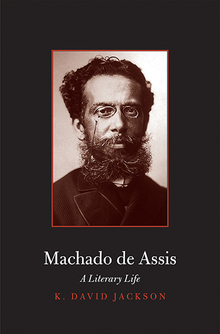Hannah Arendt/Martin Heidegger
WARNING
You are viewing an older version of the Yalebooks website. Please visit out new website with more updated information and a better user experience: https://www.yalebooks.com
Elzbieta Ettinger
Arendt and Heidegger met in 1924 at the University of Marburg, when Arendt, an eighteen-year-old German Jew, became a student of Heidegger, a thirty-five-year-old married man. They were lovers for about four years; separated for almost twenty years, during which time Heidegger became a Nazi and Arendt emigrated to the United States and involved herself with issues of political theory and philosophy; resumed their relationship in 1950 and in spite of its complexities remained close friends until Arendt's death in 1975. Ettinger provides engrossing details of this strange and tormented relationship. She shows how Heidegger used Arendt but also influenced her thought, how Arendt struggled to forgive Heidegger for his prominent involvement with the Nazis, and how Heidegger's love for Arendt and fascination with Nazism can be linked to his romantic predisposition.
A dramatic love story and a revealing look at the emotional lives of two intellectual giants, the book will fascinate anyone interested in the complexities of the human psyche.
"This is a most valuable book, an important record, and a great story of a tragic love. There are revelations here that are likely to cause a sensation."—Alfred Kazin
"The ballad of Hannah and Martin is fascinating, revealing sides of these remarkable personalities that until now have been hidden."—Kirkus Reviews
"Early on, Ms. Ettinger advances a hypothesis: It is that Heidegger's 'romantic predisposition seems to have led him both to a passionate attachment to Hannah Arendt and to a fascination with the Nazi vision of the rebirth of Germany.'...Ms. Ettinger's tale is absorbing and cruelly fascinating. She is scrupulously attentive to the known facts and unsparing in her exposure of both Heidegger's mendacity and Arendt's propensity for self-deception where the philosopher was concerned. Point by point she dismantles the structure of illusion that Arendt built around her former teacher and lover...Ms. Ettinger skillfully traces the transformation of Arendt's early infatuation with Heidegger...Ms. Ettinger makes a persistent effort to account for the main factor in the story, which is Arendt's love itself, attributing it to the power of Heidegger's intellect and a personal magnetism that in its way affected other major figures of German intellectual life also." —Richard Bernstein, New York Times Book Review
"Hannah Arendt Martin Heidegger is important for the biographical light that it sheds upon the development of Arendt's thought."--Richard Wolin, New Republic
"[Ettinger] has constructed this strange, tormented, and in some ways tragic love affair in a slim, elegantly written volume. . . . This material casts new light on the emotional lives of the main protagonists--much less so on their philosophy and politics--all the while telling a fascinating story. . . . A startlingly intimate glimpse into some of the more somber byways of relations between Germans and Jews, and into the heart's perversities."--Robert S. Wistrich, Commentary
"Startling . . . explosive."--Carlin Romano, Nation
"[A] revealing account."—Publishers Weekly
"As feminism has taught us, the personal is political. The story of Arendt and Heidegger makes clear that the personal is also intellectual and profoundly inspiring. Ettingers's hot memoir is a tantalizing glimpse into the fire of two great minds."—Marianne Ackerman, The Gazette (Montreal)
"This account . . . puts a human face on the austere Teutonic and Nazified Heidegger, while exposing the complex attitudes of Arendt. It is a great story of a love which survived a world war and two marriages. Recommended."—Reader's Review
"[A] sensitive account of [Arendt's] private life."—Richard Bernstein, International Herald Tribune
"A marvel."—Frank McLynn, Literary Review
"A compelling narrative. . . . [An] excellent book."—Paul Roazen, American Scholar
"The work is clearly written, its narrative is exciting, and its challenges to the reader are forthright."—Richard Owsley, Phenomenology and the Human Sciences
Publication Date: October 20, 1997








